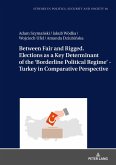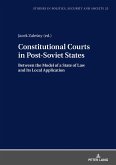The theoretical goal of the research presented in this book was to include elements of social network analysis into the classical neo-institutional theories of the government coalition formation process. The empirical goal was to verify the benefits and accuracy of this modified analytical model in the analysis of three deviant government coalition formation cases: in Canada (2008), Great Britain (2010) and New Zealand (2017).
The authors reconstruct the institutional framework and visualise the networks of connections between main actors. They argue that the transition from a stable configuration of a two-party system to a multi-party system that is extraneous for the political tradition of these democracies has significantly influenced the process of government coalition formation and cabinets appointment.
The authors reconstruct the institutional framework and visualise the networks of connections between main actors. They argue that the transition from a stable configuration of a two-party system to a multi-party system that is extraneous for the political tradition of these democracies has significantly influenced the process of government coalition formation and cabinets appointment.








